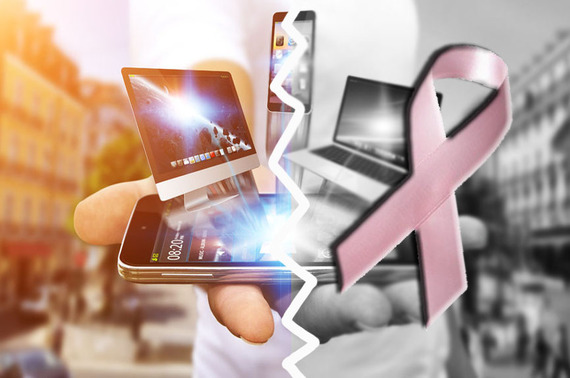While working with the head of a nonprofit that provides grants for gym equipment for underserved schools, I learned about a situation that exists that is called the "digital divide." In a particular campaign in which she was participating in order to get grant money for her projects, the voting that was being done was based on a single vote per electronic device. It was then that I realized that those students and parents who were in most need of help were not able to vote because they had no electronic devices, not even a cell phone.
I was shocked and dismayed at this situation but all of a sudden I realized that this may also be a major reason why women are not getting diagnosed with breast cancer and receiving the treatment that they need. It is not because they need to be educated in breast cancer awareness but rather it is because they don't have the ability to access the information that they need.
We take so much for granted when we set up our websites and research the information and resources that are available to everyone. We assume that if someone is in need of something, they will find the resources they need on the Internet. But, the sad fact is that many of those who may be most in need of information and services have no way to access the information about what is available. I have thought about this for a very long time now and believe that it is time to take some action especially in light of the number of women who are being diagnosed when the breast cancer has already spread to other parts of the body.
It is a proven fact that the earlier a diagnosis of breast cancer is made, the more likely there will be a successful outcome. Many organizations are currently spending large amounts of money to provide programs for free mammograms, transportation to facilities to be screened and assistance throughout any and all treatments and follow up that a person may need. However, many that are most in need of these programs don't even know that they exist.
It seems to me that more organizations would be able to make a big difference if they stepped out of their offices and made visits to churches and shelters and schools to meet with women who are in need of screening services and create opportunities for these women to get the help they need. These types of places are those that often have access to a large pool of women who may not have access to other digital media.
If the women can't travel to centers for services, perhaps resources could be provided that would make services available to them such as buses that carry screening equipment that could do mammograms on-site. Or if a woman receives a diagnosis of breast cancer following a screening at a local clinic, perhaps services could be provided at that facility that would help her through the treatment programs that she will need so she doesn't have to go through it alone. And financial assistance might also be provided if someone is willing to help with some fund raising in the community.
If such programs were adopted, the rates of death from breast cancer might be substantially reduced. Every woman should have access to the same care and treatment as the next, if she is willing to participate in such programs. The resources are available and so many people are willing to contribute not only the funds but also the time and effort and other help that a patient may need.
There is nothing that should be more important than doing everything possible to reach out to those whose circumstances have prohibited them from access to the programs that are available for screenings and treatment. If we all work toward this goal, we will be helping our communities to save the lives of many women who may be the sole support of their families and who just may only need to be given a chance.
